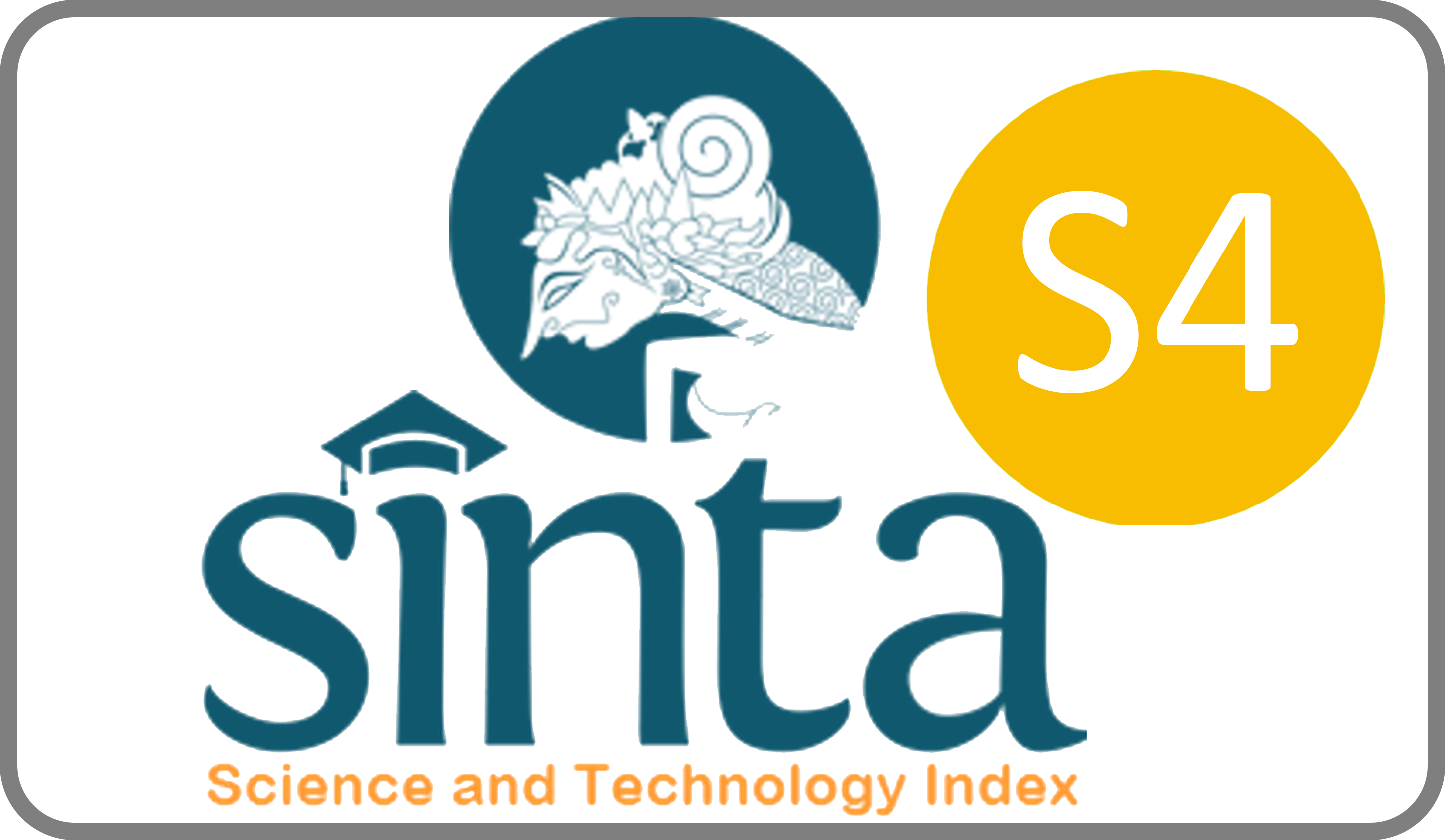DIGITALISASI TATA KELOLA KORBAN KEKERASAN TERHADAP PEREMPUAN BERBASIS STAKEHOLDERS DI PROVINSI JAWA TIMUR
Downloads
Abstract
The phenomenon of violence against women is a pandemic. There are many studies on violence but studies focusing on governance are rare. Governance involves various stakeholders with different roles so that they often face problems of coordination, integration, and synchronization. This problem also occurs in East Java. As a leading sector in handling victims of violence against women and children, the Office of Women's Empowerment and Child Protection and Population (DP3AK) of East Java Province faces challenges in the form of effective models in handling victims of violence. Meanwhile, cases of violence against women and children are very high. DP3AK requires a digital governance model in handling victims of violence more effectively on a stakeholder basis. This study offers a solution in the form of a digital platform that is able to connect victims with stakeholders.
Keywords: digitalization, governance, violence against women and children, stakeholders
Abstrak
Fenomena kekerasan terhadap perempuan bersifat pandemik. Kajian terhadap kekerasan sangat banyak namun studi berfokus pada tata kelola jarang dilakukan. Tata kelola melibatkan berbagai stakeholders dengan peran berbeda sehingga sering menghadapi masalah koordinasi, integrasi dan sinkronisasi. Problematika tersebut juga terjadi di Jawa Timur. Sebagai leading sector penanganan korban kekerasan terhadap perempuan dan anak, Dinas Pemberdayaan Perempuan dan Perlindungan Anak dan Kependudukan (DP3AK) Provinsi Jawa Timur menghadapi tantangan berupa model efektif dalam penanganan korban kekerasan. Sementara itu, kasus kekerasan terhadap perempuan dan anak sangat tinggi. DP3AK membutuhkan model tata kelola digital dalam penanganan korban kekerasan yang lebih efektif dengan berbasis stakeholder. Kajian ini menawarkan solusi berupa platform digital yang mampu menghubungkan korban dengan para stakeholder.
Kata kunci: digitalisasi, tata kelola, kekerasan perempuan dan anak, stakeholders
Afrianty, D. (2018). Local women's organizations and domestic violence in Indonesia. Bijdragen tot de Taal-, Land- en Volkenkunde, Vol. 174, pp. 24–46. https://doi.org/10.1163/22134379-17401024
Alhabib, S., Nur, U., & Jones, R. (2010). Domestic Violence Against Women: Systematic Review of Prevalence Studies. Journal of Family Violence, Vol. 25, pp. 369– 382.https://doi.org/ 10.1007/s10896-009-9298-4
Alejo, K. (2014). Long-term physical and mental health effects of domestic violence. Themis: Research Journal of Justice Studies and Forensic Science, Vol. 2, Article 5. Retrieved from http://scholarworks.sjsu.edu/themis/vol2/iss1/5
Djalante, R., Lassa, J., Setiamrga, D. Sudjatma, A., Indrawan, M., Haryanto, B., Mahfud, C., Sinapoy, M.S., Djalante, S., Rafliana, I, Gunawan, L.A., Surtiari, G.A.K., & Warsilah, H. (2020). Review and analysis of current responses to COVID-19 in Indonesia: Period of January to March 2020. Progress in Disaster Science, Vol. 6. Retrieved from https://www.sciencedirect.com/science/article/pii/S2590061720300284. https://doi.org/10.1016/j.pdisas.2020.100091
Hakim, L.N. (2011). Governance and new mode of governing: Indonesia as a methapor. Jurnal Ilmu Sosial dan Ilmu Politik, Vo. 15, No. 2, pp. 111-123. ISSN 1410-4946
Han, J.Y.C., Vigil, S., Resurreccion, B.P. (2020). COVID 19 is also a crisis of care. Stockholm Environment Institute Perspectives. Retrieved from https://www.sei.org/perspectives/covid-19-exacerbates-social-and-gender-inequalities/
Komnas Perempuan/ Komisi Nasional Perempuan. (2012). Layanan Terpadu: Pengalaman Korban Mengakses Lembaga Layanan: Hasil pemantauan akses perempuan korban terhadap layanan terpadu di Provinsi Kepulauan Riau, Jawa Timur, dan Maluku. Jakarta: Komnas Perempuan.
Komnas Perempuan/Komisi Nasional Perempuan. (2020). Catatan Tahunan Kekerasan terhadap perempuan 2019. Siaran Pers Komnas Perempuan. Jakarta. https://www.komnasperempuan.go.id/read-news-siaran-pers-dan-lembar-fakta-komnas- perempuan-catatan-tahunan-kekerasan-terhadap-perempuan-2020.
OECD. (2020). Taking public action to end violence at home. OECD High-Level Conference. Sumary of Conference Proceedings on Ending Violence Against Women. Paris, 5-6 February 2020.
Post, J.E. Preston, L.E., & Sachs, S. (2002). Managing the Extended Enterprise: The New Stakeholder View. California Management Review. 45 (1): 6–28. doi:10.2307/41166151. ISSN 0008-1256. JSTOR 41166151. S2CID 154482316.
Putra, I.G.N.E., Pradnyani, P.E., & Parwangsa, N.W.P.L. (2019). Vulnerability to domestic physical violence among married women in Indonesia. Journal of Health Research, Vol. 33, No. 2, pp. 90-105. https://doi.org/10.1108/JHR-06-2018-0018
Radhitya, T.V., & Nurwati, N., & Irfan, M. (2020). Dampak pandemi Covid-19 terhadap kekerasan dalam rumah tangga. Jurnal Kolaborasi Resolusi Konflik, Vol. 2, No. 2, pp. 111-119. ISSN 2655-8823 (p)-ISSN 2656-1786 (e)
Rollè, L., Ramon, S., & Brustia, P. (2019). Editorial: New perspectives on domestic violence: From research to intervention. Frontiers Psychology, Vol. 10, Article 641, pp. 1-3. https://doi.org/10.3389/fpsyg.2019.00641
JLM by Unair is licensed under a Creative Commons Attribution-ShareAlike 4.0 International License.
1. The journal allows the author to hold the copyright of the article without restrictions.
2. The journal allows the author(s) to retain publishing rights without restrictions
3. The legal formal aspect of journal publication accessibility refers to Creative Commons Attribution Share-Alike (CC BY-SA).
4. The Creative Commons Attribution Share-Alike (CC BY-SA) license allows re-distribution and re-use of a licensed work on the conditions that the creator is appropriately credited and that any derivative work is made available under "the same, similar or a compatible license”. Other than the conditions mentioned above, the editorial board is not responsible for copyright violation.


















